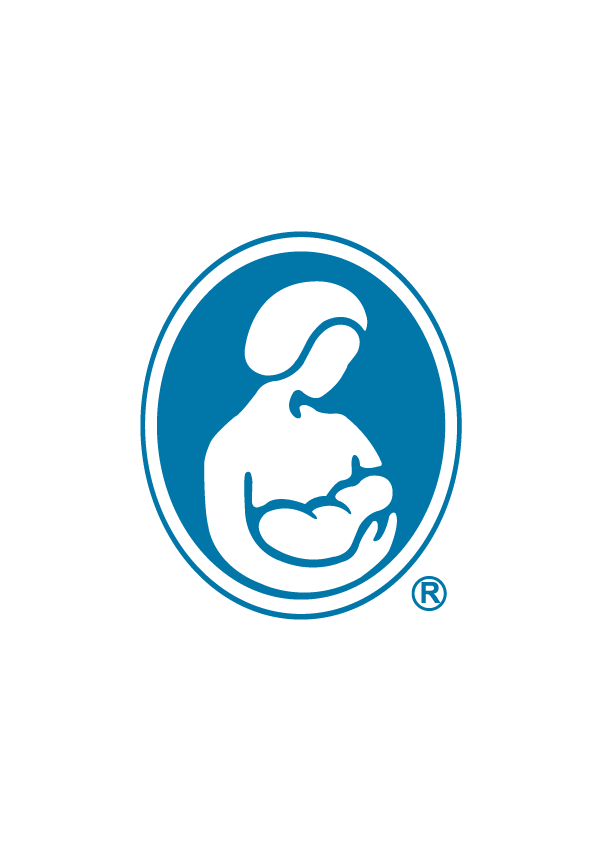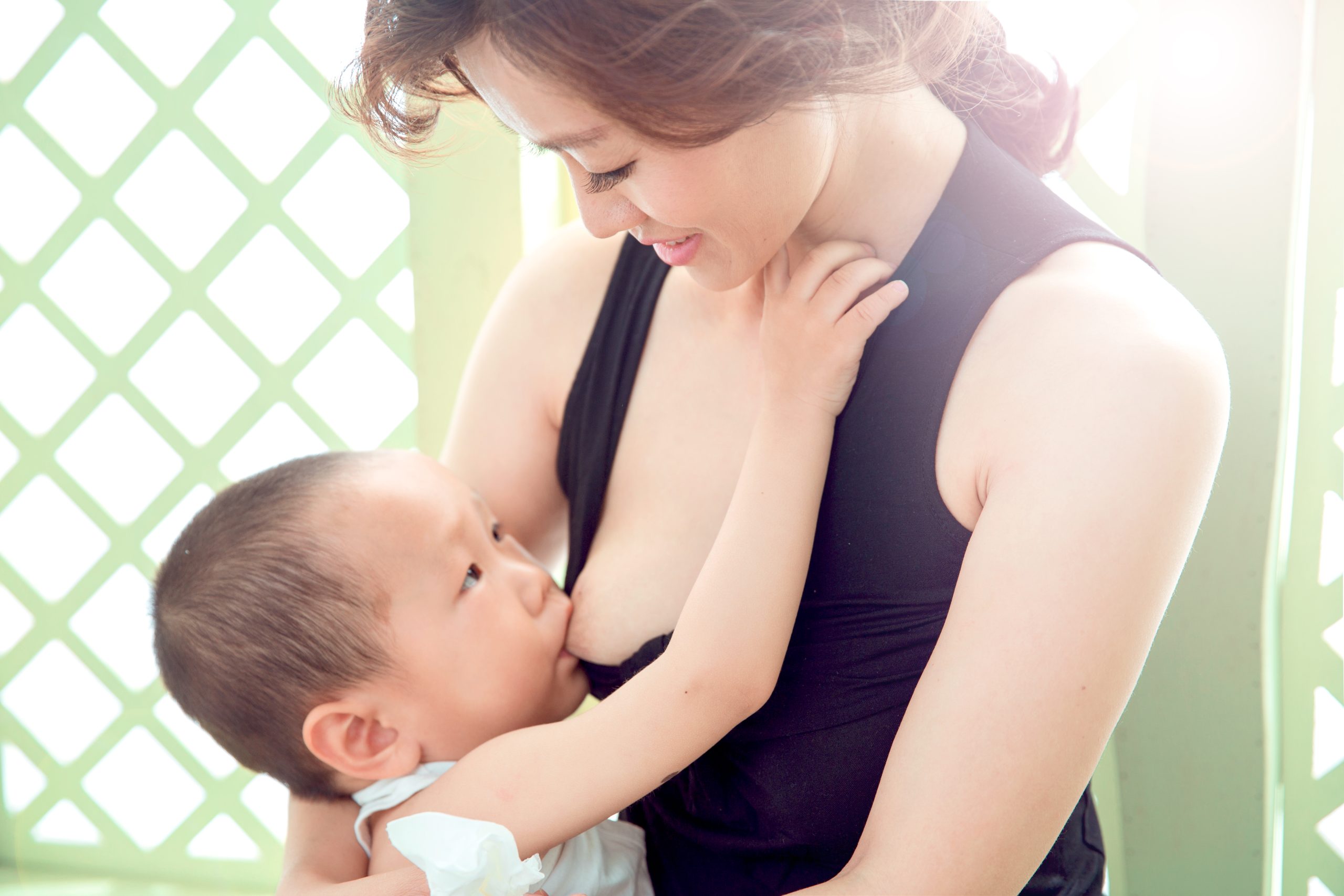Written by Jack Newman, MD, FRCPC
作者: 杰克•纽曼医生(Jack Newman, MD, FRCPC), 国际母乳会健康顾问委员会成员。
(revised January 2000)
2000年1月修订
One of the most powerful arguments many health professionals, government agencies and formula company manufacturers make for not promoting and supporting breastfeeding is that we should “not make the mother feel guilty for not breastfeeding”. Even some strong breastfeeding advocates are disarmed by this “not making mothers feel guilty” ploy.
很多健康专家、政府机构和奶粉制造公司为他们不宣传和支持母乳喂养所找到的最有力的理由之一是,我们“不应该让妈妈们因为不进行母乳喂养而感到内疚”。甚至连一些坚定的母乳喂养倡导者都对“不能让人因为不母乳喂养而内疚”这个似是而非的说法无计可施。
It is, in fact, nothing more than a ploy. It is an argument that deflects attention from the lack of knowledge and understanding of too many health professionals about breastfeeding. This allows them not to feel guilty for their ignorance of how to help women overcome difficulties with breastfeeding,which could have been overcome and usually could have been prevented in the first place if mothers were not so undermined in their attempts to breastfeed. This argument also seems to allow formula companies and health professionals to pass out formula company literature and free samples of formula to pregnant women and new mothers without pangs of guilt, despite the fact that it has been well demonstrated that this literature and the free samples decrease the rate and duration of breastfeeding.
但事实上,这种说辞仅仅只是一个混淆视听的障眼法而已。这个障眼法将人们的注意力从太多的医务人员缺乏母乳喂养知识和理解这一事实上转移开来。在其掩盖下,他们就算对如何帮助克服母乳喂养困难很无知,也可以逃避因此引发的内疚感。纵使这些困难通常是可以克服的,或者从一开始就可以避免,如果妈妈们的母乳喂养努力没有遭到如此大的破坏的话。这个借口还使奶粉公司和一些医务人员可以毫不内疚地向孕妇和新妈妈分发奶粉宣传资料和免费奶粉样品,尽管事实已经证明,这些奶粉宣传资料和免费样品降低了母乳喂养率和持续时间。
Let‘s look at real life. If a pregnant woman went to her physician and admitted she smoked a pack of cigarettes, is there not a strong chance that she would leave the office feeling guilty for endangering her developing baby? If she admitted to drinking a couple of beers every so often, is there not a strong chance that she would leave the office feeling guilty? If a mother admitted to sleeping in the same bed with her baby, would most physicians not make her feel guilty for this even though it is, in fact, the best thing for her and the baby? If she went to the office with her one week old baby and told the physician that she was feeding her baby homogenized milk, what would be the reaction of her physician? Most would practically collapse and have a fit. And they would have no problem at all making that mother feel guilty for feeding her baby cow‘s milk, and then pressuring her to feed the baby formula. (Not pressuring her to breastfeed, it should be noted, because “you wouldn‘t want to make a woman feel guilty for not breastfeeding”.)
让我们看看真实的生活吧。如果一个孕妇到医生那里,承认抽了一包烟,当她离开诊所时,是不是很可能会因为使自己正在发育的宝宝遭受危险而感到内疚?如果她承认经常会喝一些啤酒,在离开诊所时,是不是极有可能会因此感到内疚?如果一个妈妈承认她和宝宝睡在一张床上,是不是大多数的医生都会让她觉得内疚,虽然事实上,这是对她和她的宝宝都最好不过的事情。如果她带着一周的宝宝来到医生办公室,告诉医生,她在给宝宝喝市场上出售的液体均质牛奶(鲜奶),医生的反应会是什么?大多数医生会惊讶到崩溃以至于失控。他们一定会让这个妈妈感到内疚,因为她正在用牛奶喂养她的宝宝,然后,会强制这个妈妈用奶粉喂养宝宝。(大家注意,不是强制她进行母乳喂养,因为“你不想让妇女因为不进行母乳喂养而感到内疚”。)
Why such indulgence for formula? The reason of course, is that the formula companies have succeeded so brilliantly with their advertising to convince most of the world that formula feeding is just about as good as breastfeeding,and therefore there is no need to make such a big deal about women not breastfeeding. As a vice-president of Nestle here in Toronto was quoted as saying “Obviously, advertising works”. It is also a balm for the consciences of many health professionals who, themselves, did not breastfeed, or their wives did not breastfeed. “I will not make women feel guilty for not breastfeeding,because I don‘‘t want to feel guilty for my child not being breastfed”.
为什么对奶粉如此纵容?原因当然是,奶粉公司用他们的广告,出色地成功说服了世界上的大多数人——奶粉喂养差不多和母乳喂养一样好,因此,不进行母乳喂养也没什么大不了的。引用多伦多雀巢公司副总裁的话:“显然,广告起作用了。”这也是许多自己不进行母乳喂养,或者他们的妻子不进行母乳喂养的医务人员的用以弥合心灵创伤的一贴良药。“我不会让女人因为不母乳喂养而感到内疚,因为我不想因为我的孩子没有得到母乳喂养而感到内疚”。
Let‘s look at this a little more closely. Formula is certainly theoretically more appropriate for babies than cow‘s milk. But, in fact, there are no clinical studies that show that there is any difference between babies fed cow‘s milk and those fed formula. Not one. Breastmilk, and breastfeeding, which is not the same as breastmilk feeding, has many many more theoretical advantages over formula than formula has over cow‘s milk (or other animal milk). And we are just learning about many of these advantages. Almost every day there are more studies telling us about these theoretical advantages. But there is also a wealth of clinical data showing that, even in affluent societies, breastfed babies, and their mothers, incidentally, are much better off than formula fed babies. They have fewer ear infections, fewer gut infections, a lesser chance of developing juvenile diabetes and many other illnesses. The mother has a lesser chance of developing breast and ovarian cancer, and is probably protected against osteoporosis. And these are just a few examples.
让我们更仔细的看看这件事情。奶粉从理论上说当然比牛奶更适合婴儿。但事实上,并没有临床研究表明牛奶喂养的婴儿和奶粉喂养的婴儿之间有差异。一个也没有。母乳和母乳喂养而不是母乳瓶喂,比之奶粉,和奶粉比之牛奶(或者其他动物奶)相比,有着更多的优势。我们还在不断地发现很多新的优势。几乎每天,都有研究告诉我们新的东西。有众多的临床数据显示,即使在发达国家,母乳喂养的婴儿和他们的妈妈比奶粉喂养的婴儿和妈妈享受更多的优势。母乳宝宝更少发生耳部感染,更少肠道感染,患青少年糖尿病和其他疾病的几率更小。母乳妈妈患乳房和卵巢癌症的比例更低,并且不太可能患上骨质疏松症。这些还仅仅是少数例子而已。
So how should we approach support for breastfeeding? All pregnant women and their families need to know the risks of artificial feeding. All should be encouraged to breastfeed, and all should get the best support available for starting breastfeeding once the baby is born. Because all the good intentions in the world will not help a mother who has developed terribly sore nipples because of the baby‘‘s poor latch at the breast. Or a mother who has been told, almost always inappropriately, that she must stop breastfeeding because of some medication or illness in her or her baby. Or a mother whose supply has not built up properly because she was given wrong information. Make no mistake about it — health professionals‘‘ advice is often the single most significant reason for mothers‘‘ failing at breastfeeding! Not the only one, and other factors are important, but health professionals often have influence and authority far beyond their knowledge and experience.
我们如何提供关于母乳喂养支持呢?所有的孕妇和他们的家人都需要知道人工喂养的风险。应该鼓励他们都进行母乳喂养,宝宝出生后,所有母亲都应该在第一时间获得开始母乳喂养最好的支持。因为,世界上一切善意都不能帮助因为宝宝含乳不当而经历可怕乳头疼痛的妈妈,也不能帮助在她们自己和她们的宝宝生病用药时总是被错误告知必须要停止母乳喂养的妈妈,或者因为错误信息而没有建立奶量的妈妈。没错,医务人员的意见常常是妈妈们母乳喂养失败的最主要原因。当然这不是唯一的原因,还有其他重要因素,但医务人员的影响和权威,往往超出他们的知识和经验。
If mothers get the information about the risks of formula feeding and decide to formula feed, they will have made an informed decision. This information must not come from the formula companies themselves, as it often does. Their pamphlets give some advantages of breastfeeding and then go on to imply that their formula is almost, well, between us, actually, just as good. If mothers get the best help possible with breastfeeding, and find breastfeeding is not for them, they will get no grief from me. It is important to know that a woman can easily switch from breastfeeding to bottle feeding. In the first days or weeks – no big problem. But the same is not true for switching from bottle feeding to breastfeeding. It is often very difficult or impossible, though not always.
如果妈妈们知道奶粉喂养的风险,她们还是决定奶粉喂养,那么她们是在被告知风险下做出的决定。这些信息不应由奶粉公司来提供,虽然通常这些信息就是由奶粉公司提供的。奶粉公司的小册子会列出一些母乳喂养的优点,然后用隐晦的语气暗示他们的奶粉其实差不多和母乳一样好。如果有的妈妈已经得到可能得到的最好的母乳喂养帮助而仍选择不母乳喂养,那么她们不会得到我的同情。须知,在最初的几天或几周内从母乳喂养转向奶瓶喂养很简单。但是,由奶瓶喂养转向母乳喂养却不是这样,通常会非常困难或几乎不可能,当然也有例外。
Finally, who does feel guilty about breastfeeding? Not the women who make an informed choice to bottle feed. It is the woman who wanted to breastfeed,who tried, but was unable to breastfeed who feels guilty. In order to prevent women feeling guilty about not breastfeeding what is required is not avoiding promotion of breastfeeding, but promotion of breastfeeding coupled with good, knowledgeable and skillful support. This is not happening in most North American or European societies.
最后,谁会为母乳喂养而感到内疚呢?不是那些被告知风险后做出奶粉喂养决定的女人,而是那些想要母乳喂养、尝试过母乳喂养,但不能实现母乳喂养的女人,她们才感到内疚。为了防止女人因不母乳喂养而内疚,需要的不是阻止推广母乳喂养,而是在推广母乳喂养的同时,提供良好的、知识性的、有技巧的母乳喂养支持。而这一点,在大多数北美和欧洲国家都还没实现。
杰克•纽曼医生 (Jack Newman, MD, FRCPC), 国际母乳会健康顾问委员会成员。
(revised January 2000)
杰克•纽曼医生 (Dr. Jack Newman)于1970年毕业于多伦多大学的医学院,并在温哥华总医院实习。1977~1981年期间他在魁北克省的儿科和多伦多儿童医院接受了培训,1981年成为加拿大皇家医师学院的一名成员,并在同年获得美国儿科协会的认证。他于1984年在加拿大成立了第一所医院里的哺乳诊所。他是联合国儿童基金会爱婴医院倡议活动的顾问,评估了在加蓬、科特迪瓦和加拿大的第一所爱婴医院。
纽曼医生在1983年至1992年期间是儿童医院急诊室的一名儿科医生,期间也是急救站的代理主任。但是,哺乳门诊开业后,占用了他越来越多的时间,最后他就全职工作来帮助母亲和婴儿实现成功母乳喂养。现在他在多伦多市里的几家诊所工作。

